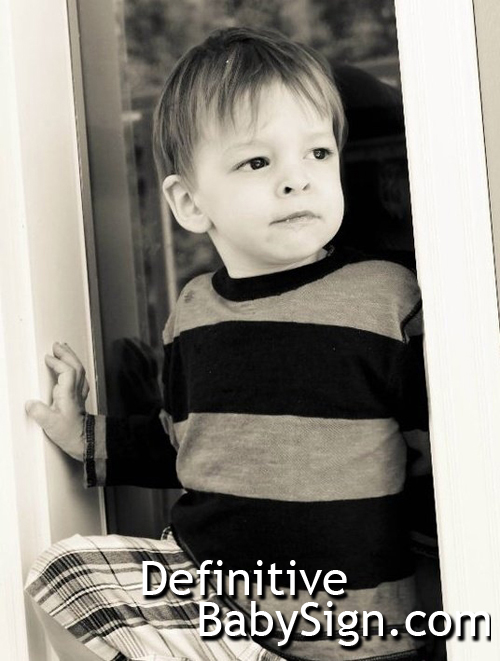 The peak for baby sign is somewhere in the 8-12 month range. Some babies can sign back at 6 months, or even 4 months, but then again some sign back later at around 14 or even 16 months in rare cases. Like everything, babies are variable in their abilities and interest in signing. Most follow predictable patterns though, but you shouldn’t be discouraged if your baby is a late bloomer.
The peak for baby sign is somewhere in the 8-12 month range. Some babies can sign back at 6 months, or even 4 months, but then again some sign back later at around 14 or even 16 months in rare cases. Like everything, babies are variable in their abilities and interest in signing. Most follow predictable patterns though, but you shouldn’t be discouraged if your baby is a late bloomer.
In fact most babies are developmentally normal when it comes to communication. Only 1 in 10 children have any sort of language delays so chances are excellent that your baby is fine. If you think your baby might be experiencing a delay you should absolutely consult an expert and get a professional opinion. However, signing, or not signing is not a determining factor in language delay. It however, might be an early indicator. You should also consult a professional before introducing sign language to a child who is suspect of having communication issues primarily because sign could interfere with verbal speech. In some cases, signs have been used successfully with children with autism and ADHD, but these are case specific and only a professional speech pathologist can recommend one course of action over another.
Always give your child some time to develop at their own pace.
Some causes for concern.
If your baby is not responding at all to sounds or is not vocalizing they should be examined by a professional. Aside from the list below, listen to your instincts as they will usually tell you that something is wrong.
Between 12 and 24 months
– Is not using simple gestures like pointing or waving bye-bye
– Prefers to use gestures (not necessarily signs) to vocalizations
– Has difficulty copying sounds
– Doesn’t follow simple verbal commands such as “Come to Momma.”
– Doesn’t say any words clearly at 18 months
– Does not combine words such as “More juice.”
Between 24 and 36 months
– Does not produce words or phrases independently, only copies others.
– Repeats certain sounds and words and doesn’t use language to communicate more than immediate needs.
– Can’t not follow simple instructions
– Caregivers can’t understand more than fifty percent of child’s speech
– Child has an unusual or raspy tone
– Does not ask questions or respond to them with “yes” or “no.”
– Speech is mostly incomprehensible by strangers
Where to go from here
Rarely is the cause of speech and language issues truly known and rather than harp on this, a professional is likely to suggest a proactive approach. First, book an appointment with your doctor and have them make out a referral to see a speech and language pathologist. They’ll probably run a few tests to evaluate the needs of your child and whether a problem truly exists. More than likely this will involve a hearing test. Ruling this out, you’ll probably be recommended specific tasks and activities.
Among them are reading more often to your child, using correct grammar and pronunciation, encouraging repetition and using shorter sentences with simpler words. They’ll probably tell you to model proper speech instead of focusing on corrective measures. You might also be recommended individual therapy based on the extent of the delay based on your child’s age and other factors. In certain cases, sign language is recommended. Thankfully, you’re already all over this!
